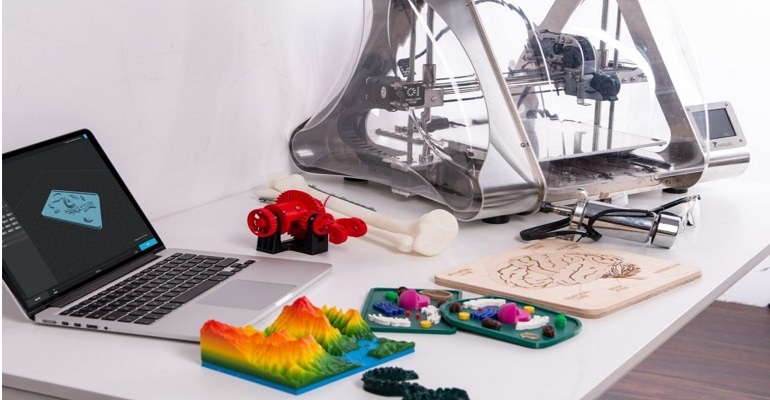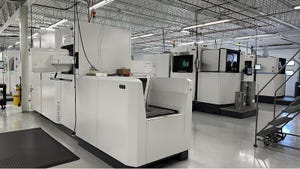Resin made from raw materials can be used in both state-of-the-art and desktop 3D printing systems.
October 19, 2020

Researchers have made what they said is a considerable advancement toward more sustainable and low-waste additive manufacturing with the development of a new bio-based resin for optic 3D printing.
Lithuanian researchers from Kaunas University of Technology and Vilnius University created the resin, which is comprised of renewable raw materials and can be used in optical 3D printing (O3DP), a rapid prototyping method that currently uses mainly petroleum-derived resins.
“Bio-based photo-curable resins for such technologies are not currently available on the market,” explained Jolita Ostrauskaitė, an associate professor at Kaunas University of Technology.
The material not only is more eco-friendly than current resins available for these types of systems but is novel in that it allows for the fabrication of parts with both nano-scale and micro-scale features, said Mangirdas Malinauskas, leader of the Laser NanoPhotonics Research Group at Laser Research Centre of Vilnius University (VU).
Until now, it’s been difficult to source a single resin that could allow for manufacturing of ultra-fine nano-/micro-features and macro-objects out of the same composition, he said. However, the bio-resin developed by the team proved in the lab that this is possible, Malinauskas said.
The O3DP process prints objects by treating a photo-curable resin with light to solidify it. A benefit of this technology is that the 3D printing can be very flexible and precise—the elements can reach sub micrometers as well as macro dimensions.
Universal Printing Possibilities
However, one drawback to this method of printing is that resins currently associated with it are fickle and not suited to all of the various set-ups due to their physical and chemical properties.
The team believes the resin can solve this problem. The material can be used with state-of-the-art laser nanolithography printers and on common, commercially available table-top 3D printers, they said. Indeed, to test it, researchers used both types of machines to print a number of complex objects without needing to modify the resin for production.
Because the resin is bio-based, it also can help drive the cost of procuring the material down because raw materials for the resin can be purchased in bulk.
Though the bio-resin is not available for commercial printing yet, it is possible for manufacturers to use it on demand, as it is compatible with current commercial systems such as the JSC 3D Creative.
However, the team needs to do more research to optimize the resin for safety and efficiency before it’s ready for more widespread use in the future. To this end, researchers have collaborated with Ecolabnet, a network of service providers promoting innovations in eco-friendly solutions, on their work.
Elizabeth Montalbano is a freelance writer who has written about technology and culture for more than 20 years. She has lived and worked as a professional journalist in Phoenix, San Francisco, and New York City. In her free time, she enjoys surfing, traveling, music, yoga, and cooking. She currently resides in a village on the southwest coast of Portugal.
About the Author(s)
You May Also Like



